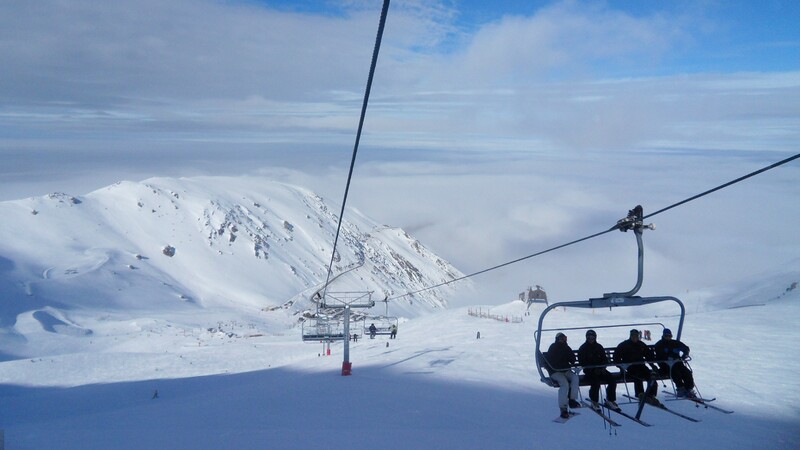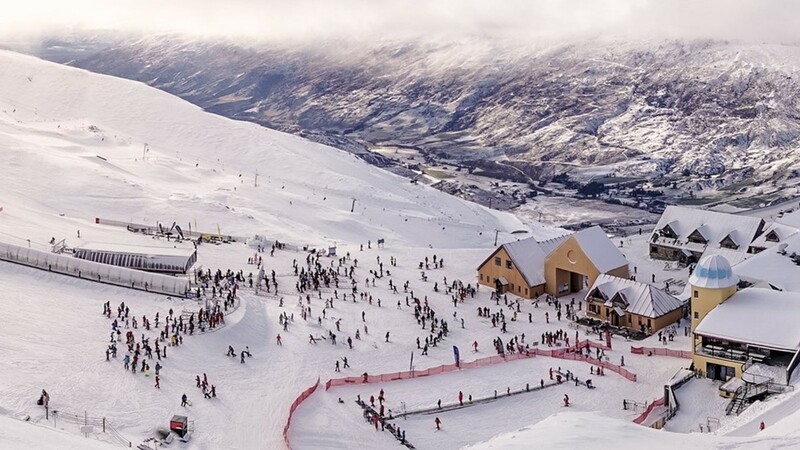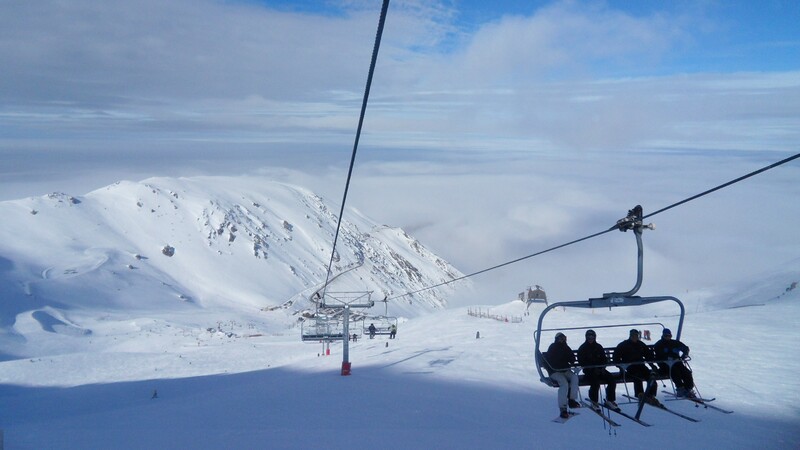Haere mai ki te R1 News on Radio One 91FM, the student radio station at the University of Otago.
Get the scoop on local, national and international current affairs with our daily news bulletin. Dive deeper into news stories with our expert interviews. Stay in the know with happenings in Ōtepoti Dunedin and beyond with our recurring panel of guests. Only on Radio One 91FM, the R1 News, weekdays at 1pm - and right here, where we upload our show daily!
News. From the Campus to the Beehive. For students by students.
Interested in finding out more?
You can follow us on Instagram: https://www.instagram.com/r1newsnz/
Check out our website: https://www.r1.co.nz/news
You can find our podcasts on Spotify at R1 News or wherever else you get your podcasts - just search for R1 News by Radio One 91FM!
Interested in joining the R1 News team? Got a news tip?
Email us at: news@r1.co.nz
Made with the support of NZ On Air.
Kaia Kahurangi Jamieson, R1 News Reporter
Green MP Chlöe Swarbrick: Local government crucial to efficient decision making; stronger relationship between local and central government needed
Council body elections will be held in early October, and with numerous local and national burgeoning concerns such as Three Waters and climate change, it’s time to have a look at the powers and importance of Aotearoa's councils.
Auckland-Central MP and Green Party Local Government spokesperson Chlöe Swarbrick says voters ought to get more involved with council body elections, as councils make large decisions for their everyday lives and can make those decisions much faster than central government.
Swarbrick also stressed the importance of local government requiring more Māori representation on councils to uphold Te Tiriti, and voiced that the relationship between local and central government needs to be on fairer ground.
Filmmaker threatens boycott of documentary festival over Israeli embassy funding
A group of filmmakers selected for the DocEdge International Film Festival have signed an open letter to the festival calling for DocEdge to drop funding from the New Zealand Israeli Embassy. Earlier in the week, Kaia Kahurangi Jamieson spoke to petition author and filmmaker Cole Yeoman about the intentions of the letter and its signatories concerns regarding the funding.
Kiringāua Cassidy, translator for Frozen reo Māori, on platforming te reo & te Ao Māori through Disney cartoon classics

Over Matariki, Aotearoa welcomed a new version of Disney’s The Lion King, translated into te reo Māori. The film hit cinemas after being translated, fully recast and overdubbed in te reo Māori over the course of a year. Disney is currently working on adding Frozen to their repertoire of translated films, alongside The Lion King and Moana. Earlier this week, I spoke to Kiringāua Cassidy, translator for Frozen reo Māori, about the importance of platforming Māori language through cartoon classics, and what this could mean for the future of the Māori film industry.
Weekly Snow Report with OUSSC

Peter from the Otago University Snow Sports Club breaks down the South Island’s snow report and mountain conditions for the week ahead, concluding with his top picks for skiing this weekend.
Ewan Mackie (Treble Cone Ski Area Manager & Sustainability Lead) on sustainable skiing practices at Cardrona and Treble Cone.

Ski resorts can have a significant environmental impact, a downside which is often overlooked. Over the past few years, Wānaka ski resorts Cardrona and Treble Cone have been working together to offset some of their environmental impacts. The mountains have recently launched a waste reduction initiative, removing all public-facing landfill bins, and a transport emissions reduction plan, providing free public shuttles to access the mountains. Ewan Mackie, Treble Cone Ski Area Manager & Sustainability Lead, joins to discuss sustainable skiing practices and how we can move toward a more environmentally friendly ski industry in Aotearoa.
Weekly Snow Report with OUSSC

Peter breaks down the South Island’s snow report and mountain conditions for the week ahead, concluding with his top picks for skiing this weekend.
2021 sees significant decline in HIV/AIDS diagnoses and deaths in Aotearoa
In 2021, the number of people diagnosed with HIV in Aotearoa dipped to its yearly lowest since 2001, with a 51% drop in cases from the average of the previous five years. Earlier this month, the Burnett Foundation (Previously the AIDS Foundation) celebrated its first full year with no AIDS-related deaths recorded in New Zealand. We spoke to Dr. Sue McAllister, AIDS Epidemiology Group Leader, about the encouraging decline in HIV and AIDS cases, the role of regular testing in preventing transmission of STIs, and how we can support the de-stigmatisation of HIV, AIDS and other STIs and STDs.
IPCC tells governments to encourage plant based diets - academic
The Intergovernmental Panel on Climate Change (IPCC) released a series of recommendations to governments around the globe earlier this year, to encourage quicker and more effective climate action. One of these recommendations is for governments to encourage and facilitate a widespread shift to plant-based diets. Dr Alex MacMillan, Senior Lecturer in the Department of Environmental Health at the University of Otago, speaks to us about the implications of the IPCC's proposal.
COVID's impact on the global and local art market, with Otago Arts Society President
COVID-19 has impacted almost every sector of society, especially global markets and sales. One industry which has adapted significantly throughout the pandemic is the global art market. Recently, a collection of eminent works of art were acutioned for record prices at Sotheby's, the world's largest art marketplace. Notable sales include a Mark Rothko painting which sold for $48,000,000 and a self portrait by Andy Warhol which sold for $18,000,000. R1 News reporter Kaia Kahurangi Jamieson spoke to Otago Arts Society Pesident Doug Hart about how the art market has adapted over the past three years, and the impact of the pandemic on theaccessibility and appreciation of art.
Spotlight on End ASH Now
Áine Kelly-Costello and Carolina Vasquez tell us about the discriminative prejudices, policies and and systems disabled migrants face. The End ASH Now campaign, aims to make migration a fair process. Áine is a paralympic swimmer, migrant and activist. Carolina is the mother of a disabled daughter, who is currently campaigning for her family's right to residency/adequate visas.
Critic Catch-Up: Conspiracy Issue with editor Fox Meyer
This week on our Critic Catch-up, we talk to editor Fox Meyer about this week's Conspiracy-themed issue.
Aotearoa Legal Worker's Union National Executive's mission to engage law students in collective action for legal workers
The Aotearoa Legal Workers Union advocates for the rights of legal employees across the country, campaigning for salary consistency, workplace relationships and other issues lacking compliance with workers rights. Launched on May 1st, the ALWU's student branch seeks to engage law students around Aotearoa in its collection action. Charlie Robinson, Student Representative on the ALWU's National Executive, speaks to us about the ALWU's student outreach campaign.
Campion's Oscar win landmark for local and women's filmmaking
Earlier this week, Dame Jane Campion won the Oscar for Best Director for her film The Power of the Dog, becoming the first woman to be nominated for the award twice.
R1 News’ Kaia Kahurangi Jamieson spoke to screen producer and owner of Bloom Pictures Alex Reed about what this win means for New Zealand filmmakers, and what it means for women filmmakers.





 Live stream
Live stream





